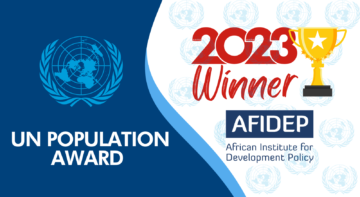Blogs

On 23-25 July, Results for All, AFIDEP and IDinsight convened a workshop that brought together policymakers, researchers, civil society members, funders, and other partners to discuss how evidence can be used to improve policy implementation. The two-and-a-half-day workshop aimed to foster dialogue, exchange of ideas and insight, and active engagement among participants, to more deeply understand policy implementation challenges and lessons from different contexts; and introduce tools and approaches for improving implementation using various types of evidence.
The workshop emphasised the participation of multi-sectoral government teams working on a range of policy issues to bring out the complexity of policy implementation as well as draw similarities and differences across sectors and policy issues. A total of ten government teams representing health, education, gender and social welfare, science and technology, environment and planning and finance sectors from nine countries participated in the workshop. Countries represented included Kenya, Rwanda and Uganda from East Africa, Ghana and Nigeria from West Africa, Malawi and South Africa from Southern Africa and Chile and Mexico from Latin America. Three of the government teams (Chile, Mexico and South Africa) included government evaluation agencies purposively selected to draw lessons on how this arrangement has worked, the benefits and challenges.
The government teams presented a range of policy issues and related policy implementation challenges, relating to use of evidence, that they were grappling with and hoped the workshop would help resolve. Policy issues presented included education equity and quality (Chile and Mexico), waste disposal (Ghana and Nigeria), reproductive, maternal, newborn, child and adolescent health including family planning and prevention of mother to child transmission of HIV (Kenya and Rwanda), targeting beneficiaries for social support services (Malawi), violence against women (South Africa) and social sector development (Uganda). Some of the teams were grappling with how to better monitor and evaluate their policies (Ghana, Malawi and South Africa). Whereas some teams sought to understand how to use data and evidence to advocate for policy change and/or enhance policy outcomes (Kenya, Nigeria, and Uganda), Chile and Mexico presented baseline results and plans for monitoring and evaluating their policies.
The workshop discussions reveal that across sectors use of evidence to improve policy implementation is not happening optimally largely because of limited attention to planning for monitoring and evaluation of policies during the policy development process. However, at the root of the problem is a lack of a culture of evidence use. Bitange Ndemo, a professor at the University of Nairobi but also the immediate former Permanent Secretary for Kenya’s Ministry of Information and Communication, articulated this point in his remarks at the opening session of the workshop on what needs to be done to improve the use of evidence to inform policy implementation. The keen interest in using evidence to improve policy implementation among government teams attending this workshop shows that such initiatives could be useful in unearthing and contributing to a shift towards a culture of evidence use. However, lessons from other related initiatives, including AFIDEP’s SECURE Health programme, which aimed to optimise the use of evidence in the health sectors and parliaments of Kenya and Malawi, show that lasting changes in norms require institutional adjustments that favor evidence-informed decision-making.
Government, industry, academic/research institutions and civil society organisations including media should institutionalise structures and processes that incentivise evidence-informed decision-making and promote interaction of a wide range of actors as well as synthesis, exchange, and use of the evidence. Structures and processes that promote interaction of actors can nurture trust and relationships among the various actors and their shared understanding of decision-making and research processes and contexts, which are widely acknowledged to facilitate evidence-informed decision-making. Professor Ndemo, echoed the importance of government, industry, and academia interacting and working together and noted that this is happening sub-optimally in Africa. He further noted that there is a lot of evidence that is being generated but not getting used because of limited access to the evidence. He challenged « big data’ generators including government and private sector to openly share their data so that it can be analysed by interested parties and used to inform policy implementation.
The work of IDinsight, a non-profit organisation that designs, deploys, and promotes evidence-generating tools that help people eliminate poverty worldwide, shows how making government data accessible to other actors for further analysis can be beneficial. IDinsight worked with the Zambia Ministry of Community Development to recode and reanalsye data from their social cash transfer programme to assess its performance and used GIS mapping technology to present the data. The new analysis showed gaps in the reach of the programme that informed adjustments in the programme’s implementation.
Finally, funding is critical and, therefore, government and development partners must allocate funding to support the generation of relevant, timely and quality evidence, synthesis, exchange and use of the evidence, and skills development.
The workshop is timely and attempts to take a deep dive into a discussion on using evidence to improve policy implementation, identify challenges and introduce tools and approaches that could be useful. The discussions and participant feedback point to an appetite for information on how to enhance their performance and the need for follow-up initiatives to facilitate cross-learning as well as research to build the knowledge-base in this area. In fact, workshop participants agreed to form a network to serve as a platform for ongoing knowledge sharing and capacity strengthening to enhance the use of evidence in policy implementation. This platform could potentially be evaluated to assess its effectiveness.
Related Posts





